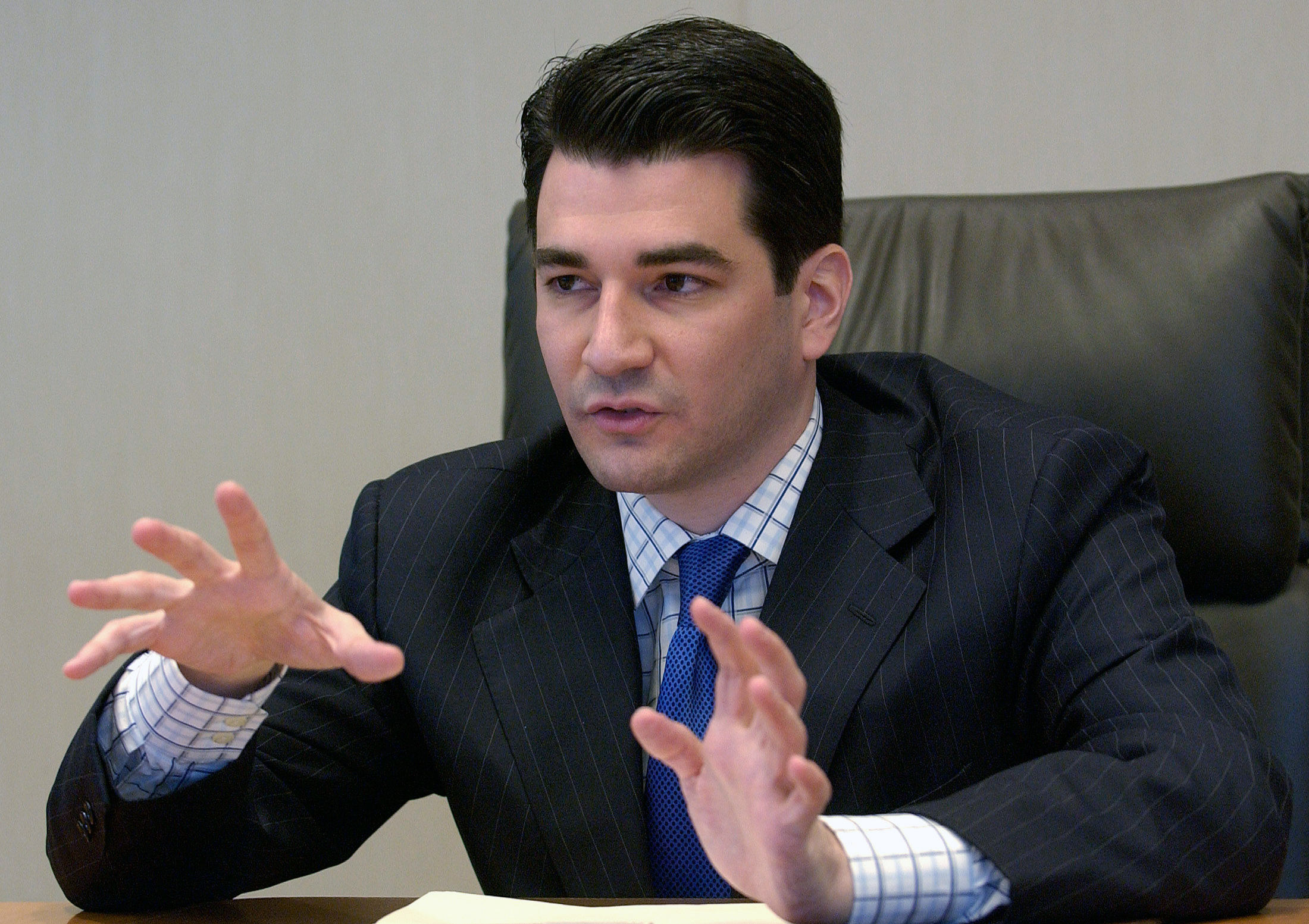
(WASHINGTON) — The White House is expected as early as Friday to nominate Dr. Scott Gottlieb, a physician and conservative health policy expert, to lead the U.S. Food and Drug Administration, sources familiar with the matter said.
If confirmed by the Senate, Gottlieb would be in charge of implementing President Donald Trump’s plan to dramatically cut regulations governing food, drugs, cosmetics, dietary supplements and tobacco.
Gottlieb, 44, is a resident fellow at the conservative American Enterprise Institute think tank and a partner at a large venture capital fund. He is a former FDA deputy commissioner who has frequently advocated a loosening of requirements needed for approval of new medical products.
Gottlieb is well-known on Capitol Hill, where he has testified multiple times on hot-button health issues, including complex drug pricing matters, and is viewed favorably by the pharmaceuticals industry.
A survey conducted by Mizuho Securities USA Inc of 53 pharmaceutical executives found that 72 percent favored Gottlieb over other potential candidates. Many described him as knowledgeable, experienced and balanced.
“He will be a pragmatic leader with an eye toward both expedited approvals and safety,” one executive wrote.
Between 2005 and 2007 Gottlieb was FDA deputy commissioner for medical and scientific affairs. Previously he was a senior advisor to the commissioner and acted as the agency’s director of medical policy development.
“Scott knows how the agency works and he will move it forwards, though maybe not always in ways the agency is comfortable with,” said John Taylor, a lawyer with the FDA consulting firm Greenleaf Health and a former acting FDA deputy commissioner.
Gottlieb was chosen over Jim O’Neill, a libertarian investor close to Silicon Valley billionaire Peter Thiel, a PayPal co-founder who now advises Trump on technology and science matters. O’Neill’s stated view that drugs should be approved before being proven effective generated widespread alarm.
One of Gottlieb’s areas of interest is streamlining the process for approving generic versions of complex, difficult-to-copy therapeutics. He has stated publicly that he does not believe the FDAhas good tools or policies to move such products and has advocated the creation of different approval standards.
CLINICAL TRIAL FLEXIBILITY
Gottlieb declined to comment on the pending nomination, which was going through last-minute vetting on Friday. He is expected to encourage the agency to increase flexibility in the clinical trial development process.
In this he will be supported by the recently passed 21st Century Cures Act which instructs theFDA among other things to consider the use of “real world evidence” to support new drug applications. This could include anecdotal data, observational studies and patient reports.
“People don’t want to take chances with safety, but there’s increasingly some clamor to be more flexible on the efficacy side,” said Kathleen Sanzo, who leads the FDA practice at the law firm Morgan, Lewis & Bockius. “You need to have some signal of efficacy. The question is, how much?”
The FDA has attempted to push back against moves to sideline randomized clinical trials, long considered the gold standard. In January it issued a report documenting 22 cases in which drugs that appeared to show promise in early trials turned out to be either ineffective or unsafe or both in larger trials.
Critics say moves to water down clinical trials could jeopardize patient safety.
“Destroying medication and device approval standards at the FDA will have devastating, life-and-death consequences for hundreds of thousands of Americans,” Robert Weissman, president of the watchdog Public Citizen, said recently in a statement.
The agency has already taken multiple steps to speed the approval process, though not enough for some.
“They can always do more.” Brent Saunders, chief executive of Allergan Plc said.
Last year, Dr. Janet Woodcock, the agency’s powerful head of pharmaceuticals ordered the approval of Sarepta Therapeutics Inc’s drug to treat Duchenne muscular dystrophy based on little more than a hint of efficacy.
In doing so she overrode the recommendation of a panel of outside advisors and top scientists at the agency and set what some say is a precedent for approving drugs based on minimal data.
“How can you say it’s ok for this company but not that company?” Mark Mansour, a partner with the law firm Mayer Brown LLP said. “The administration is going to be pushing for quicker approval of drugs for all sorts of diseases with similar, vociferous patient populations who are crying out for a solution.”
Other companies that may benefit from Gottlieb’s presence are manufacturers of electronic nicotine delivery systems such as e-cigarettes. The American Enterprise Institute has consistently argued that there is no evidence to show that the risk of vaping comes near to the risk of smoking.
More Must-Reads from TIME
- Donald Trump Is TIME's 2024 Person of the Year
- Why We Chose Trump as Person of the Year
- Is Intermittent Fasting Good or Bad for You?
- The 100 Must-Read Books of 2024
- The 20 Best Christmas TV Episodes
- Column: If Optimism Feels Ridiculous Now, Try Hope
- The Future of Climate Action Is Trade Policy
- Merle Bombardieri Is Helping People Make the Baby Decision
Contact us at letters@time.com